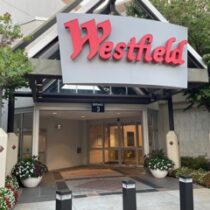
Most of the speakers at Tuesday’s public hearing favored a proposed bill that would mandate placement of free menstrual products in restrooms throughout the county to end period poverty.
Under the Menstrual Products Access and Equity Act, tampons and sanitary napkins must be available for free in certain public places, with public bathrooms, including restaurants, hotels and movie theaters that are required by law to have a public bathroom.
“We need to normalize menstruation,” declared county resident Laura Stewart.
Hannah Soloman, a sophomore at Richard Montgomery High School, urged councilmembers to offer the products free for “full menstrual equity” so that women will not be “embarrassed, stressed, depressed or shamed.”
George Mason University Associate Professor Jhumka Gupta said the free products are needed so that women don’t miss school, work or physical or social activities for fear of being without menstrual products when a sudden need arises.
Period products “should be just as ubiquitous as toilet paper is. Both are basic needs,” she said.
Jacquelyn Lendsey, interim director of the D.C. Diaper Bank, said her organization distributed almost 300,000 period products to more than 20 organizational partners to help end period poverty in the region.
Not everyone favored the proposal. Stacey Sauter, who said she was “speaking on behalf of common sense,” urged the council not to mandate something that will cost businesses money “when they are already fleeing” the county.
Doing so would make Montgomery County “a nanny state,” she said, adding that being prepared is part of growing up.
Sauter said people would stop buying period products on their own when they could get them for free elsewhere. She also said, “If you can afford to eat out, you can afford” the necessary supplies.
Matt Libber, executive director of Maryland SoccerPlex, said he understood the need but urged the county to provide funding to help businesses afford the products.
“Our budget is already set,” he said. “Right now, we just need help implementing this going forward.”
Following the public hearing, Councilmember Will Jawando held a press conference in support of the mandate. Women having to pay for menstrual products incur “extra taxes on being just who you are, being a woman,” he said.
“These barriers and challenges are real,” Jawando said, adding that those on a low income and students are “particularly hurt.”
His proposal “will make products accessible without stigma,” he said.
If approved by the council, period products would be required at restaurants, hotels, retail stores, hospitals, nursing homes, movie theaters and concert halls, meeting halls, skating rinks, sports arenas, amusement and recreation parks, picnic grounds, bowling alleys, golf courses and swimming pools.
They would have to be available on buses, trains and cabs.
The proposal is expected to go before council committee and the full council in the beginning of 2024.
Menstruation is a common but deeply personal experience. For a variety of reasons, people can find themselves unprepared to meet their menstrual health needs when out & about. County residents, how would YOU benefit if period products were freely available like TP in restrooms? pic.twitter.com/u07dODMyCs
— Councilmember Will Jawando (@CMJawando) December 11, 2023

